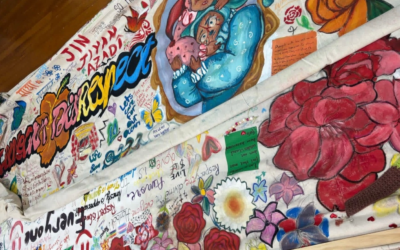
Starting a new semester at university can be daunting – instead of feeling excitement to be on campus grounds, like a fresh page on a desk, for those already suffering from psychological trauma, such as mental strain or anxiety, the likelihood of them experiencing academic burnout in the early weeks of term heightens.
Many uni students in the last two years experienced something akin to lockdown side-effects, where even though they were back in a lecture room, surrounded by peers, the feelings of isolation and depression that were a result of the early years of the COVID-19 pandemic continued to stay with them.
To try to block out mental demons and lessen the possibility of academic burnout, here are three tips to help uni students recharge their batteries for the start of the first term of 2024:

Tip 1 – Socialise:
Socialising can greatly improve uni students’ mental health and has the potential to reduce anxiety, loneliness, and depression.
For both new and returning students in 2024, this could be achieved by looking at the online Events List, through WesternLife (for those at Western Sydney University, in particular), and joining a club – one of the many on campus. There are societies to suit all interests, such as the WSU Book Club, and the Western Run Club.
Tip 2 – Exercise:
Exercise, such as walking or running, has been known to be a positive factor in both students’ mental and physical health; it improves memory function and acts as a stress elixir- the latter of which is particularly important, especially toward the second half of the new semester, when exam periods come up, and the first group of assessments are due.
Not only are students out in nature, which has been proven to also lift moods and calm minds, but they can listen to music or audiobooks when on a walk or run and, perhaps best of all, it’s an activity that can also be experienced with a friend – so it provides a social aspect too.
Tip 3 – ‘Yes’ to new experiences:
Getting out of your comfort zone can lead to new experiences and ultimately improve one’s outlook. For the beginning of the new year, leading into the first study semester of 2024, students who make a conscious effort to say ‘Yes’ to new opportunities once uni starts could benefit greatly, as their social circle could widen, leading to fruitful friendships.
Also, keeping a positive frame of mind – that any new experience can be good – has the potential to decrease depression and loneliness as well as boost confidence, as new horizons open up, both academically and personally, such as perhaps being invited to join a club, being offered a role in a student organisation, or even an internship.

These three tips have the potential to stifle academic burnout and bring relief, allowing students to gently ease back into uni life unencumbered by acute fear.
Together, they have the power to lessen anxiety, loneliness, and depression so that – when starting semester one, 2024 – students can soak up all the positive experiences that the campus has to offer – both events, clubs, and other social gatherings.
One of the many good things about these recommendations is that they all overlap in how they involve peers.



